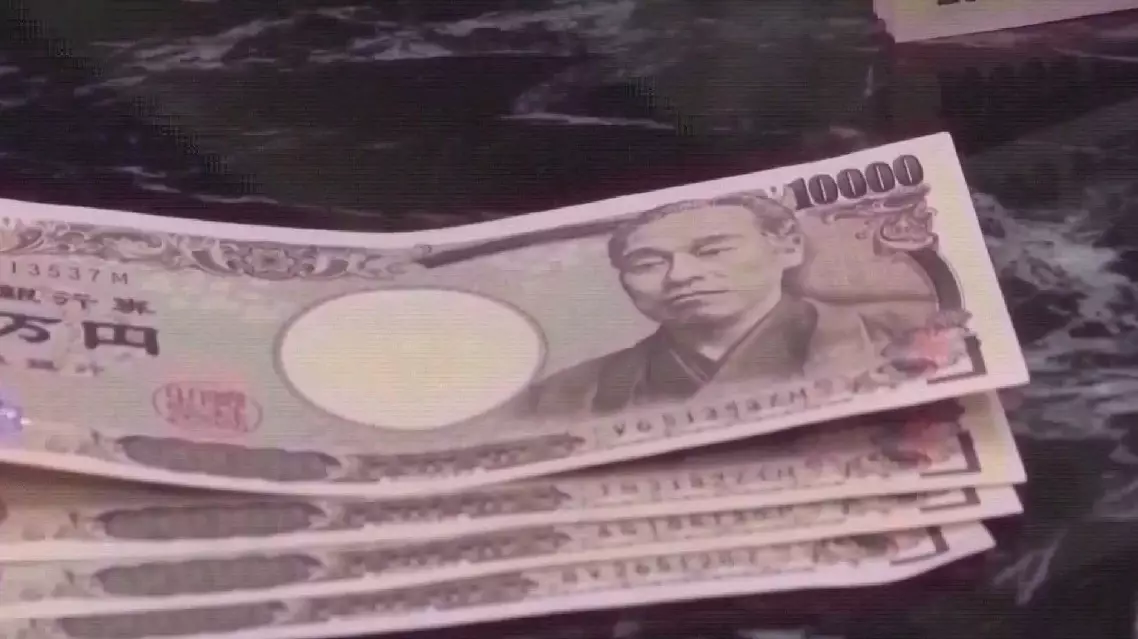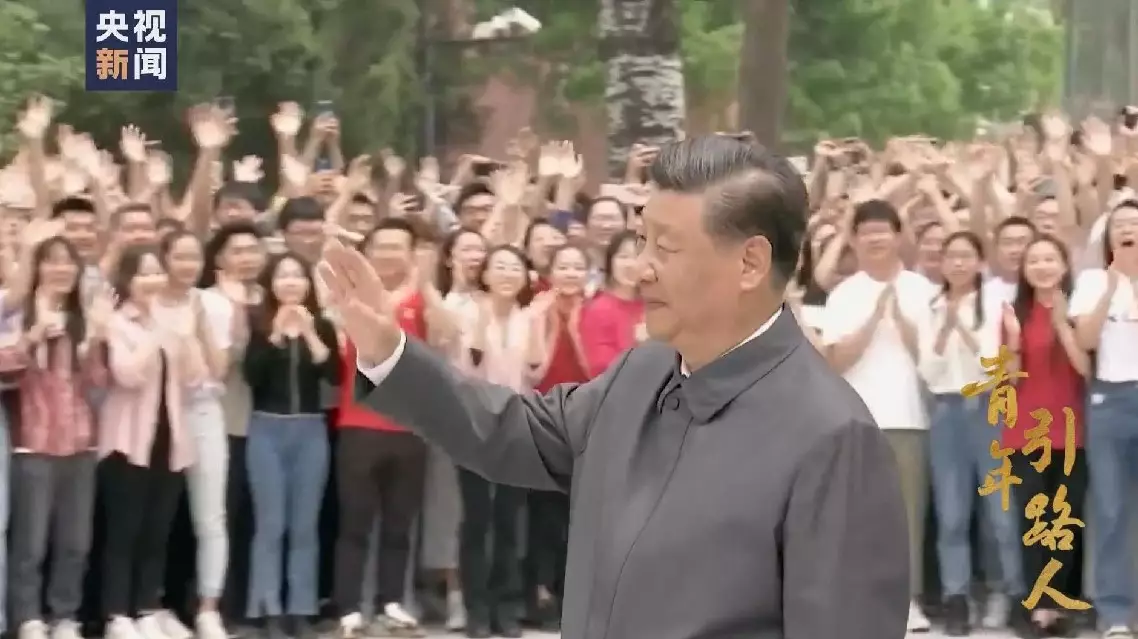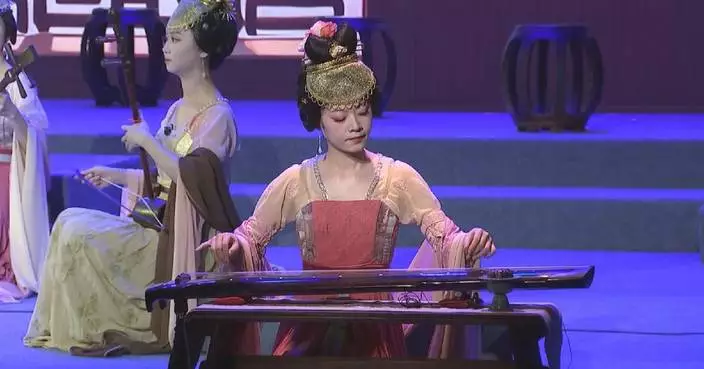The Japanese yen's recent depreciation will not bring any benefit to both exporters and consumers, whereas it will further strain Japan's economy, said a Japanese economist on Wednesday.
Japan's currency yen recently hit a 34-year low against the U.S. dollar, sinking to 155.17 against the U.S. dollar on Wednesday, breaking the threshold of 155.
The yen's weakness against the dollar, much related to the aggressive interest rate hikes of the U.S. Federal Reserve (Fed), has led to shrinking wallets and subdued consumption in Japan.
As of March this year, Japan's core consumer price index (CPI) had increased for 31 consecutive months.
Theoretically, a decline in the currency can boost exports. However, Japanese exporters have found a rise of production costs, driven by price hikes of energy and imported materials. Trade statistics released by Japan's Ministry of Finance last Wednesday indicated a trade deficit in a third year.
For Hideo Kumano, chief economist with the Dai-ichi Life Research Institute, the unabating slide of the Japanese yen will hardly bring benefits to Japanese companies and the economy.
"In fact, almost nobody believes that such a depreciation is beneficial to exporters. In contrary, for consumers, the devaluation of the yen will cause the price of imported goods to rise, and prices of food and energy, such as gasoline, which have been stabilized with great difficulty, will increase further. The depreciation of the yen is obviously disadvantageous to consumers," said Kumano.
The Bank of Japan will start to discuss the impacts of the yen's rapid fall on the country's inflation at its two-day policy meeting starting Thursday. It is the first policy meeting of Japan's central bank since it raised interest rates this March for the first time in 17 years which ended the negative interest rate policy.
On Tuesday, Japan's finance minister Suzuki Shunichi hinted that the Japanese government will not hesitate to intervene in the currency market to prevent further depreciation of the yen, saying that the government will not rule out any appropriate response.
For Kumano, the Japanese government is facing challenges in coming up with measures to intervene the yen's exchange rate.
The Japanese government has a huge debt. If the Bank of Japan raises interest rates to offset the impacts of the yen's depreciation, the Japanese government will face a lot of pressure to pay the increased debt interest, said Kumano, adding that Japan has little room on this.
"If the Japanese economy worsens in the future, the Bank of Japan raising interest rates will lead to a large increase of interest to be paid for debt. It will be a problem at a political level, and this is a very critical point," said Kumano.
Local analysts believe that the yen's appreciation in the future is inevitable, but Japan can hardly reverse a general trend of economic contraction in the long run.

Yen's depreciation will not benefit Japanese exporters and consumers: economist
Chinese President Xi Jinping once said every year around May 4, he would reserve time for young people. Over the years, he has managed to find time to connect with young people despite his busy work schedule.
On May 4 each year, China celebrates its Youth Day in tribute to the patriotic legacy of the May Fourth Movement that took place in 1919.
Xi has always encouraged the current young generation to chase their dreams through hard work and set a fine example for them.
Since 1969, Xi, not even 16 at that time, was sent from Beijing to Liangjiahe, a small village in Yanchuan County in northwest China's Shaanxi Province on the Loess Plateau, to engage in arduous farm labor. He spent seven years there and did all the farm work.
Xi, then Party secretary of Liangjiahe Village, led villagers to build the first methane-generating pit in Shaanxi, which caused a sensation across the whole county, according to a news report titled "The Story of Igniting Fire" by "Yan'an Tongxun" on Sept 20, 1975.
"My family has a revolutionary tradition. [They always said] children should not be raised in the greenhouse, but should experience strong winds and heavy waves," Xi said when talking about his family tradition.
Looking back at his youth, Xi once said "My primary requirement for myself is to 'put myself into hardship'."
Addressing a gathering marking the centenary of the May Fourth Movement in Beijing on April 30, 2019, Xi said "Youth is one's prime time to develop skills and grow abilities. If one makes his/her youth slip by without achieving anything, and only lament in old age, what's the point?"
The Chinese president deeply understands the aspirations of young people. He often gets close to them, offering encouragement through his own experiences.
In July 1984, Xi, then Party chief of Zhengding County of north China's Hebei Province, chatted with students from Beijing-based Renmin University of China who were on a field research activity in the county.
Xi shared his experience and encouraged them to gain first-hand experience by working at the grassroots level after graduation.
On May 3, 2023, Xi wrote a reply letter to students from China Agricultural University, encouraging the students to make greater contributions to rural revitalization.
"You said only by walking deep into rural China could one understand what it means to seek truth from facts, and maintain close ties with the people. The young people should actively seek hardship. You're absolutely right," Xi said, hailing that "This is the spirit that Chinese youth in the new era should have."
Also at the gathering marking the centenary of the May Fourth Movement, Xi said "It is a relay race to realize the great rejuvenation of the Chinese nation. We are determined to run for a good score for our young people. We also look forward to a better score achieved by the younger generation."
In his visit to Peking University in May 2014, Xi told the students to "button right" in the early days of their life.
"The value orientation of youth will decide the values of the whole society. It is very important to foster proper values in that age. It is like buttoning up one's jacket. The buttons of life should be fastened well from the very beginning," he said.
In military barracks, the Chinese president encouraged young officers and soldiers to seize the opportunity and strive forward.
During his visit to the Wukesong Sports Center in Beijing in February 2017, Xi urged young athletes to train hard for the Beijing 2022 Winter Olympic Games.
"China should become a powerful country in every aspect. China will be strong if our young generation is strong, and China will be strong if our sports competitiveness is strong. The hope is on all of you," Xi said.
In his visit to RICOM, an optical lens company in the eastern Chinese city of Fuzhou in March 2021, Xi encouraged young scientific and technical workers to make contributions to the country.
"We call for innovation regardless of personal background. What's most important is to make contribution to the country," Xi said.
He also urged young officials to stay true to their mission and support the aspirations of young people in rural revitalization efforts.
"We should appreciate and applaud the innovation and creativity of young people. We should support them, help them shine brilliantly in their life, and cheer for the achievements and successes they've accomplished," Xi said at the gathering marking the centenary of the May Fourth Movement in 2019.

Xi's close connection with young people










